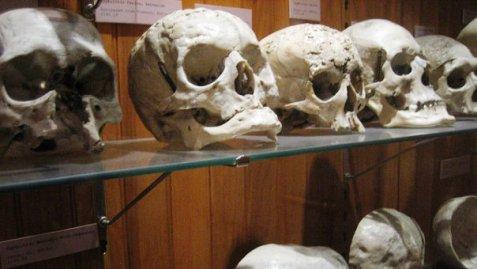Ancient skulls vindicate Colombus of spreading syphilis.
Source : http://www.foxnews.com/scitech/2010/10/25/ancient-skulls-vindicate-columbus-spreading-syphilis/

Skulls with tell-tale signs of syphilis (pictured above) may prove that the sexually transmitted disease existed in Europe centuries before Columbus discovered the New World.
Skeletons unearthed in a cemetery may have cleared Christopher Columbus as the original transatlantic vector of syphilis.
It's been popularly theorized among experts in tropical diseases that the explorer brought back one too many treasures from the New World, including the potentially fatal sexually transmitted infection. Soon after his return in the mid-1490s, a pandemic of the disease erupted in Europe.
However, the largest excavation of skeletons undertaken in Britain has unearthed seven that suggest the disease was known in England up to two centuries before that.
Archaeologists believe that rough patches on the skulls and limbs of skeletons found at St Mary Spital in East London exonerate Columbus’s crew.
Brian Connell, an osteologist for the Museum of London who studied the bones, said he had no doubt that the skeletons were buried before Columbus’ voyage. Radiocarbon dating of the samples is estimated to be 95 percent accurate.
“We’re confident that Christopher Columbus is simply not a feature of the emergence and timing of the disease in Europe,” Connell said.
The seven syphilitic skeletons from St Mary’s Spital, two from 1200-1250 and five from 1250-1400, are not only better preserved than those considered previously, but buried alongside other skeletons and objects such as coins that corroborate radiocarbon dating results.
Connell said it was probably a coincidence that the first well-documented outbreak of the disease was after Columbus’ return.
“People were looking for someone to blame. It was called the French pox by the English and the Spanish pox by the Dutch. We all blamed it on everyone else.”
Tahitians thought of it as the British disease. The bones do not suggest a new culprit, but do suggest that it would be unfair to label syphilis the American disease.
NewsCore contributed to this report.